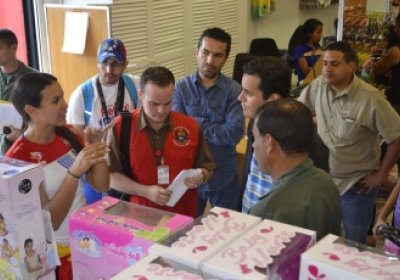The Venezuelan government plans to continue its land expropriations this year in its push to move towards what it terms “agrarian socialism”.
In the 2014 national budget, the government’s National Land Institute (INTI) sets its aim to expropriate 350,000 hectares of land this year.
This compares with the goals of 350,000 and 397,000 hectares of land the government sought to expropriate in 2012 and last year respectively. The government began to increase the pace of land expropriations in 2011.
Merida
Communes and social movements have demanded the Venezuelan government combat the assassination of rural activists in the mountains of western Venezuela, which they say is undermining communal organising in the region.
The assassinations are taking place in the mountains of the western state of Lara. In response to the latest murder of an activist in the region, a group of 21 communes and more than 20 social movements, human rights groups and community media outlets released a statement on January 18 denouncing the situation of growing insecurity in the area.
More than 500,000 houses have been built since mid 2011 under the Venezuelan government’s mass housing building construction program.
Launched by former president Hugo Chavez to tackle the South American country’s shortage of affordable housing, the program has the ambitious aim of building three million new homes by 2019.
Venezuelan President has Nicolas Maduro announced a raft of new regulatory measures as part of his ongoing “offensive” to deal with the country’s economic problems.
In a television interview on December 1, Maduro said the government’s economic policies were aimed at “stabilising” the economy in order to be able to develop a “productive” economic model.
This year, Venezuela has experienced shortages in several basic food and household goods, a black market dollar worth ten times the government-set exchange rate, and annual inflation of 54%.
The National Electoral Council (CNE) has announced the first results of the Venezuelan municipal elections held on December 8. Mayors and local councilors were elected for the country’s 335 municipalities, as well as the metropolitan mayor of Caracas.
CNE president Tibisay Lucena read out the results. Turnout was 58.92%, with 97% of votes counted so far.
The results for 77% of mayoralties were announced, with the ruling United Socialist Party of Venezuela (PSUV) and its allies winning 196 so far, of the 257 mayoral position results that are so far irreversible.
Local citizens voted to create 169 new communes on November 24, deepening efforts to create forms of communal organisation in the South American country.
A recent national census found there are more that 40,000 active communal councils in Venezuela. These are local participatory bodies that develop their communities and can receive public funding.
Communes are based on groups of communal councils, and can take on larger -scale projects and economic activities.
Venezuela’s National Assembly granted President Nicolas Maduro the power to pass laws by decree on economic and anti-corruption issues for a period of 12 months on November 19.
The National Assembly held a second and final vote on a proposal from Maduro to enact the so-called enabling law, which allows him to legislate by decree on specific issues for the period set by the assembly.
Maduro has been empowered to pass laws to “fight corruption, usury, money laundering and the economic war unleashed in recent times against the country by the national oligarchy”.
The Venezuelan government is planning to implement profit limits across the economy as part of a crackdown on overpricing, Venezuela Analysis said on November 18.
The plan is in response to revelations of mass price speculation by retailers earlier this month. Some companies were found to be taking advantage of cheap imports at the government’s official exchange rate, then marking up prices and making profits of more than 1000%.
Venezuelan President Nicolas Maduro has announced a slew of policy reforms aimed at combating speculation and hoarding. New government institutions are also being created to regulate trade and oversee foreign currency exchange.
“We have to make real decisions for the benefit of the economy and society, whatever the cost and whatever happens,” Maduro said on November 6.
Describing the package of reforms as an “economic offensive”, Maduro pledged to “strike hard” at speculators and hoarders.
Venezuela's finance minister, Nelson Merentes, presented a draft 2014 budget to the National Assembly on October 22 that devotes more revenue to social services, while predicting continued economic growth and lower inflation.
About 62% of the 551 billion bolivars budget (about $92 billion) would be devoted to social services, compared with 37.7% this year.
Venezuelan president Nicolas Maduro has launched the second phase of his Street Government initiative, with the aim of inaugurating new projects and strengthening community organisation.
The Street Government is a governance mechanism implemented by Maduro this year which involves the national executive visiting Venezuela’s regions and holding meetings with different neighbourhoods and social groups.
These meetings allow the government to orientate its regional development strategies and launch new projects with the support and involvement of communities.
Venezuelan President Nicolas Maduro ordered the expulsion of a top US diplomat and two other embassy officials from Venezuela for alleged conspiracy with the opposition.
“Get out of Venezuela,” said Maduro during a televised political event. “Yankee go home. Enough of abuses against the dignity of a homeland that wants peace.”
The US officials named were charge d'affaires Kelly Keiderling, and two other embassy employees, Elizabeth Hunderland and David Mutt. They were given 48 hours to leave the country.
- Previous page
- Page 3
- Next page




